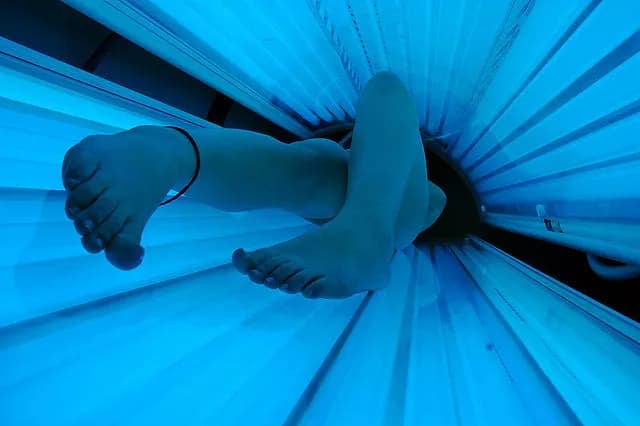The U.S. Food and Drug Administration (FDA) has proposed a ban on tanning bed use by those under 18. In 2013, a law was enacted in New Jersey banning those under the age of 17 from using tanning beds. Jerod L. Stapleton, PhD, is a behavioral scientist at Rutgers Cancer Institute of New Jersey and assistant professor of medicine at Rutgers Robert Wood Johnson Medical School, whose research aims to understand why young people frequently engage in indoor tanning. He shares some insight into the concern by medical professionals about the risks of this practice -- especially by teens and young adults.
Q: The FDA also proposed that adults sign a waiver indicating they understand the risks associated with using a tanning bed. Is the risk the same for adults and teens?
A: The artificial ultraviolet radiation emitted from tanning beds can cause the type of skin damage that can become skin cancer. This type of damage occurs for anyone who uses a tanning bed regardless of their age.
Q: What is the concern with people under 18 in particular in using tanning beds?
A: Many scientific studies show the risk of skin cancer from using tanning beds is greater among people who start using tanning beds at a younger age and report longer periods of prolonged use. Young women are the most likely group to become prolonged users of tanning beds and many first engage in indoor tanning as teenagers. The steady rise in melanoma rates among young adult females in the United States and in several European countries is a particularly concerning reason to enact additional restrictions related to indoor tanning.
Q: What is the significance of the FDA proposed ban in light of existing and ongoing indoor tanning laws?
A: State-level laws that restrict or ban access to indoor tanning beds widely vary across the country. Some states have no restrictions on indoor tanning or instead of bans rely on parental consent laws, which studies suggest may not be effective in preventing minors from using indoor tanning beds. An FDA ban would provide necessary protection for all U.S. minors from harmful tanning beds and would represent a significant public health improvement.
Q: Your research examines why young people engage in this practice. What are some of your findings?
A: In my research with young women who regularly engage in indoor tanning, it's clear that being tan is a fundamentally important part of being an attractive person. As a result, these young women think about tanning a lot and are unhappy with their appearance around others when they are not tan. In addition, it's interesting to see indoor tanning is often a social experience, as many young women go to the salon with a group of friends. For these tanners, the benefits of tanning outweigh the health risks.
Q: Are there any effective ways to encourage people to stop using indoor tanning beds?
A: Tanners may be reluctant to stop if being tan is an important part of their identity or if tanning is part of their relationships with friends. I recently tested an internet-based intervention designed to encourage women to reconsider the importance they placed on tanning in light of the harmful effects and to consider alternative ways to achieve some of the benefits of indoor tanning. We found encouraging results, as women who viewed the intervention reported less tanning behavior compared to a group who did not receive the intervention.
The above post is reprinted from materials provided by Rutgers Cancer Institute of New Jersey. Note: Materials may be edited for content and length.
Disclaimer: DoveMed is not responsible for the adapted accuracy of news releases posted to DoveMed by contributing universities and institutions.
Related Articles
Test Your Knowledge
Asked by users
Related Centers
Related Specialties
Related Physicians
Related Procedures
Related Resources
Join DoveHubs
and connect with fellow professionals


0 Comments
Please log in to post a comment.